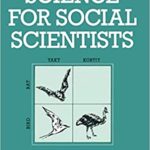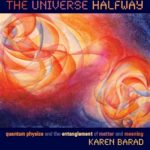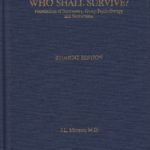![A pasteurização da França (Latour 1988 [1984]) A pasteurização da França (Latour 1988 [1984])](https://www.laspa.slg.br/wp-content/uploads/2021/04/latour_pasteurization-666x1024.jpg)
A pasteurização da França (Latour 1988 [1984])
LATOUR, Bruno. 1988. The Pasteurization of France. (Trads. Alan Sheridan; John Law). Cambridge: Harvard University Press. [1984]
PÓS-SOCIAL:
The exact sciences elude social analysis not because they are distant or separated from society, but because they revolutionize the very conception of society and of what it comprises. (Latour 1988:38)
I do not talk of “society,” because the associations that concern me are not limited to the few permitted by the “social.” (Latour 1988:199)
ASSOCIATIONS (strong or weak):
More seriously, sociology remains deaf to the lessons of the actors themselves. If we wish to learn from this lesson and still call ourselves sociologists, we must redefine this science, not as the science of the social, but as the science of associations. We cannot say of these associations whether they are human or natural, made up of microbes or surplus value, but only that they are strong or weak. (Latour 1988:40)
UM ARTIGO CIENTÍFICO COMO ASSOCIAÇÃO FORTE:
A scientific article is not of course a description or a distraction. It is a means of pressure on readers, convincing them to change what they believe, what they want to do, or what they want to be. In order to construct those paths that attract, move, force, or do violence to the reader, the author associates himself with everything that may tend to support his point of view and to make his conclusions as indisputable as the course of a river through a V-shaped valley. (Latour 1988:94)
NOÇÃO ASSOCIATIVA DE LEGITIMIDADE:
The notion of legitimacy is rarely correct in sociology, but it may sometimes serve to designate the relation between groups that cannot translate their interests in order to extend their influence but that nevertheless need one another. It is another, simpler form of association. (Latour 1988:135)
THE ASSOCIATIVE STRENGHT OF THE ACTOR:
1.1.9 An actant can gain strength only by associating with others. Thus it speaks in their names. Why don’t the others speak for themselves? Because they are mute; because they have been silenced; because they became inaudible by talking at the same time. Thus, someone interprets them and speaks in their place. But who? Who speaks? Them or it? Traditore-traduttore. One equals several. It cannot be determined. If the fidelity of the actant is questioned, it can demonstrate that it just repeats what the others wanted it to say. It offers an exegesis on the state of forces, which cannot be contested even provisionally without another alliance. (Latour 1988:160)
LIBERDADE => ASSIMETRIA => COERÇÃO:
1.1.10 Act as you wish, so long as this cannot be easily undone. As a result of the actants’ work, certain things do not return to their original state. A shape is set, like a crease. It can be called a trap, a ratchet, an irreversibility, a Maxwell’s demon, a reification. The exact word does not matter so long as it designates an asymmetry. Then you cannot act as you wish. There are winners and losers, there are directions, and some are made stronger than others. (Latour 1988:160)
ASSOCIAÇÃO e GRADIENTE DE RESISTêNCIA:
1.1.12 To create an asymmetry, an actant need only lean on a force slightly more durable than itself. Even if this difference is tiny, it is enough to create a gradient of resistance that makes them both more real for another actant (1.1.5). (Latour 1988:160)
ASSIMETRY by ASSOCIATION:
1.3.2 Given that actants are incommensurable and that each makes a world as large and complete as any other, how does it happen that one becomes more than another? By claiming to be several, by associating (1.1.9). (Latour 1988:168)
ASSOCIATION = MISUNDERSTANDING:
two forces cannot associate without misunderstanding. (Latour 1988:168)
AGENTE x PACIENTE:
1.3.4 Although all entelechies are “equally” active, they may appear to be in two states: dominating or dominated, acting on or acted upon. (Latour 1988:168)
DEFINIÇÃO, CONTRADIÇÃO e CONTROLE:
1.3.5 Since an actant can become greater than another only by being one of several, and since this association is always a misunderstanding, the one who defines the nature of the association without being contradicted takes control. (Latour 1988:168)
AÇÃO e RESULTADO:
There are acts of differentiation and identification, not differences and identities (1.1. 16). The words “same” and “other” are the consequences of trials of strength, defeats and victories. They cannot themselves describe these links. (Latour 1988:169)
NETWORK MONADOLOGY:
In a network certain very distant points can find themselves connected, whilst others that were neighbors are far removed from one another. Though each actor is local, it can move from place to place, at least as long as it is able to negotiate equivalences that make one place the same as another. A network can thus be “quite general” without ever having to pass through a “universal.” However rarefied and convoluted a network may be, it nevertheless remains local and circumscribed, thin and fragile, interspersed by space. We should imagine filamentlike entelechies, spun out and interwoven with one another (1.2.7), which are incapable of harmony because each one defines the size, the tempo, and the orchestration of this harmony. (Latour 1988:169-70)
NOT “FREE” ASSOCIATION:
2.3.1 We never begin to talk in words that freely associate, but rather in our mother tongue (2.2.2). […] Others have already played with the words when we start talking (1.1. 10). Year after year, century after century, others have made certain associations of sounds, syllables, phrases, and arguments possible or impossible, correct or barbaric, proper or vulgar, false or elegant, exact or nonsensical. Even though none of these groupings is as solid as claimed (2.1 .4), if we wish to undo or remake them, we become the object of blows, bad marks, caresses, gunfire, or applause. (Latour 1988:181-2)
EQUIVALÊNCIA e ASSIMETRIA:
2.3.3 All associations of sounds, of words, and of sentences are equivalent (2.1 .8), but since they associate precisely so that they are no longer equivalent to each other (1.3 .6), in the end there are victors and vanquished, strong and weak, sense and nonsense, and terms that are literal and metaphorical. (Latour 1988:182)
THE DEFINITION OF THE SITUATION:
3.2.1 What is the state of affairs? Where do things stand? What is the balance of forces? Using the multitudes which they make speak, some actants become powerful enough to define, briefly and locally, what it is all about. They divide actants, separate them into associations, designate entities, endow these entities with a will or a function, direct these wills or functions toward goals, decide how to determine that these goals have been achieved, and so on. Little by little they link everything together. Everything lends its strength to an entelechy that has no strength, and the whole is made “logical” and “consistent”-in other words strong (2. 1 .8). (Latour 1988:197)
SYSTEM:
The notion of system is of no use to us, for a system is the end product of tinkering and not its point of departure (2.1 .4). For a system to exist, entities must be clearly defined, whereas in practice this is never the case; functions must be clear, whereas most actors are uncertain whether they want to command or obey; the exchange of equivalents between entities or subsystems must be agreed, whereas everywhere there are disputes about the rate and direction of exchange. Systems do not exist, but systematizing is common enough; everywhere there are forces that oblige others to play the way they have always played (1.1. 13). (Latour 1988:198)
ASSOCIATIVE CHOICE:
3.2.4 As it associates elements together, every actor has a choice: to extend further, risking dissidence and dissociation, or to reinforce consistency and durability, but not go too far. (Latour 1988:198)
UNCONSCIOUS:
I would grant the term “unconscious” if we were sufficiently open-minded to designate things-in-themselves with it. (Latour 1988:199)
ASOCIOLOGY:
If sociology were (as its name suggests) the science of associations rather than the science of the social to which it was reduced in the nineteenth century, then perhaps we would be happy to call ourselves “sociologists.” (Latour 1988:205)
If we trace in the dictionary the slow drift of socius with its associated or successive meanings, we will be struck by how the meaning of “social” has continued to shrink (3.4.7.). It begins as “association” and ends up with “social workers” by way of the “social contract” and the “social question.” My redefinition aims simply to resurrect its original richness of meaning. (Latour 1988:258 nota 30)
POTENCY
4.1.1 You can become strong only by association. But since this is always achieved through translation (1.3.2), the strength (1.5.1, 2.5.2) is attributed to potency, not to the allies responsible for holding things together (3.3.6). (Latour 1988:212)
POTENCY x FORCE:
4.1.4 When a network conceals its principle of association, I say that it displays “potency.” When the array of weaknesses that makes it up is visible, I say that it displays “force.” (Latour 1988:213)
SEMIÓTICA, SOCIOLOGIA e ANTROPOLOGIA (ignorância controlada)
I am fusing here the method of semiotics with an argument from sociology. My claim is simply that the lists of actors and associations obtained by a semiotic study of the articles of the period are longer and more heterogeneous than the lists offered by the sociologists or social historians of the period. To grasp the argument of the next section, we must accept a certain degree of ignorance as to what is the real list of actors making up a society, and a certain degree of agnosticism about which are human and which are nonhuman, which are endowed with strategy and which are unconscious. Because of this fusion, this ignorance, and this agnosticism I prefer to call the discipline I work in “anthropology of science and technology.” When ethnographers work in exotic realms, they often gain, without too much ado, this state of uncertainty-or of grace that is so hard to get when treating our societies. See 3.5.2 (Latour 1988:257 nota 26)
CAUSA:
A cause is always the consequence of a long work of composition and a long struggle to attribute responsibility to some actors. (Latour 1988:258 nota 33)
SOCIO-LÓGICA da ACUSAÇÃO:
The process of accusation is an excellent model for the study of sciences as well as parasciences or witchcraft. By following who is preferably accused and what is preferably considered to be the cause of a misfortune, the ethnographer can easily reconstruct society’s network of associations. Trailing the processes of accusation allows a direct entry into “sociologics.” (Latour 1988:259 nota 36)




 O LaSPA é sediado no Instituto de Filosofia e Ciências Humanas (
O LaSPA é sediado no Instituto de Filosofia e Ciências Humanas (